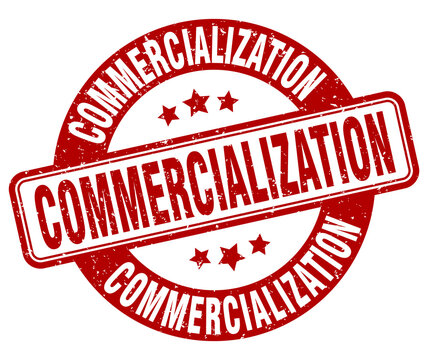 | Competitive Advantage |
Warren Buffet described what he looks for as an investor as “strong sustainable moats”. By this he talks about sustainable competitive advantage, or barriers to entry that can range from patented inventions to unique rights negotiated into a contract.
We approach competitive advantage using Michael Porter’s work at Harvard University. His book Competitive Advantage is used in many universities. He targets three things as a the hallmarks of competitive achievement.
- a sustainably higher price point.
- a sustainably lower cost structure.
- unique features that are highly valued by customers. (needs, not wants)
We use this lens to guide our investments into moats that we can influence. Intellectual Asset Management is the business role responsible for managing “moats” or competitive advantage. It comprises, intellectual property (IP) but this alone is not broad enough to capture all of the non-IP based assets that also establish meaningful competitive advantage. We define two types of intellectual assets. First, formal intellectual property are captured through special government policy such as copyright law or patent law; and informal intellectual assets are generally captured through contract law. Contracts that capture know-how in people, or contracts that define unique organizational relationships are examples of informal intellectual assets.
Things that cannot be discreetly captured, valued, and monetized are not intellectual assets for the purposes of this exercise. Network effect, market share, or economies of scale certainly offer effective barriers to entry, however, they the outcomes of competitive strategy rather than tools to get there. The intellectual asset team, or competitiveness team should be responsible for identifying opportunities to grow and exploit the portfolio of useful intangible assets across the business.
 | Intellectual Asset Management |
 Meet Michael: Michael Eisenberg holds a law degree from the UCLA School of Law, a Master of Science degree in Biomedical Physics from the UCLA School of Medicine, and a Bachelor of Science degree in Physics from UCLA. While pursuing his graduate and professional studies, he served as an instructor at UCLA for undergraduate courses in the physics department. His graduate work focused on medical radiation devices such as medical accelerators and medical imaging, and studies in radiation biology. Following completion of his legal education, he was an associate in an intellectual property specialty law firm, and at a general practice international law firm. Michael is registered to practice in patent cases in all 50 states and territories of the United States and is a member of the State Bar of California. He also regularly supports Canadian innovators and is registered with (CAPTA) the Canadian College of Patent Agents and Trademark Agents.
Meet Michael: Michael Eisenberg holds a law degree from the UCLA School of Law, a Master of Science degree in Biomedical Physics from the UCLA School of Medicine, and a Bachelor of Science degree in Physics from UCLA. While pursuing his graduate and professional studies, he served as an instructor at UCLA for undergraduate courses in the physics department. His graduate work focused on medical radiation devices such as medical accelerators and medical imaging, and studies in radiation biology. Following completion of his legal education, he was an associate in an intellectual property specialty law firm, and at a general practice international law firm. Michael is registered to practice in patent cases in all 50 states and territories of the United States and is a member of the State Bar of California. He also regularly supports Canadian innovators and is registered with (CAPTA) the Canadian College of Patent Agents and Trademark Agents.Michael leads a team of independent contractors working in concert to build valuable IP portfolios. His associate network includes prosecution and enforcement support in Europe, China, and North America. Technically they are experienced in most fields of technology comprising the mechanical and electrical arts, medical devices, software, business methods, and e-commerce.
Typical Pricing:
- US provisional application filing = $2,000 USD *
- US formal patent filing = $10,000 to $12,000 USD *
(* plus govt. fees)
Services include:
- Patent drafting, prosecution, and enforcement
- Trademark drafting, prosecution, and enforcement
- Copyright and design prosecution, and enforcement
 | Commercialization Technology Transfer Business Development |
 Meet Sean: Sean Irvine is a Professional Engineer and Certified Licensing Professional with 30 years of innovation management experience. Sean was a Canadian patent examiner in his early career where he examined and issued over a thousand Canadian patents. At the Sauder School of Business, he taught MBA students Intellectual Property & Business Strategy, and in the Master of Engineering Management Program, he taught Intellectual Property & Technology Commercialization. He was a member of the International Licensing Executive Society (LES) and cochaired the Canadian Education Committee for over a decade.
Meet Sean: Sean Irvine is a Professional Engineer and Certified Licensing Professional with 30 years of innovation management experience. Sean was a Canadian patent examiner in his early career where he examined and issued over a thousand Canadian patents. At the Sauder School of Business, he taught MBA students Intellectual Property & Business Strategy, and in the Master of Engineering Management Program, he taught Intellectual Property & Technology Commercialization. He was a member of the International Licensing Executive Society (LES) and cochaired the Canadian Education Committee for over a decade.Today he works across industry sectors advising executives about moats that matter. He does this by engaging executive teams to consider competitive strategy through intellectual asset audits that connect company resources, process and targets, where the target is sustainable competitive advantage.
Services include:
- Value proposition design
- Competitive strategy
- Innovation management
- Licensing
- Business development
- Negotiation
- Exit preparation / M&A
 Meet Rob: Rob Dhat, an expert in technology commercialization and intellectual property strategy, combines a BSEE from the University of Victoria with an MBA from Wharton. His over 15 years of leadership experience in publicly traded companies spans critical sectors such as consumer electronics, mobile technology, and semiconductors. His adeptness in developing and monetizing technology has consistently spurred revenue growth and operational efficiency.
Meet Rob: Rob Dhat, an expert in technology commercialization and intellectual property strategy, combines a BSEE from the University of Victoria with an MBA from Wharton. His over 15 years of leadership experience in publicly traded companies spans critical sectors such as consumer electronics, mobile technology, and semiconductors. His adeptness in developing and monetizing technology has consistently spurred revenue growth and operational efficiency.As CEO and Founder of Decipher IP, Rob has played a pivotal role in shaping the company into a premier provider of SaaS-based IP asset management solutions for Fortune companies. Under his leadership, Decipher IP has served esteemed clients such as Bayer, Monsanto, Broadcom, and Cummins, enhancing their IP strategies and operational efficiency. His strategic vision and practical execution have led to the creation of solutions that both protect and optimize intellectual assets, showcasing his commitment to excellence in the IP management field.In addition to his role at Decipher IP, Rob is the CEO and Founder of ideawerks, bringing a decade of consulting and entrepreneurial insight. At ideawerks, he has worked with a diverse portfolio of clients, including Power Integrations, Technicolor, and General Electric, advising on technology commercialization and growth strategies. This experience across various sectors, from early-stage startups to established Fortune 500 enterprises, has sharpened his ability to identify and capitalize on market opportunities, fostering innovation and guiding transformative growth.
Rob's career is distinguished by significant achievements, such as building infrastructures for publicly traded companies and negotiating licensing agreements that have generated billions in revenue with companies like Xperi and Rambus. His strategic mindset, coupled with effective communication and negotiation skills, positions him as a respected and influential figure in the technology and IP sectors.
